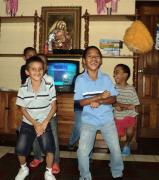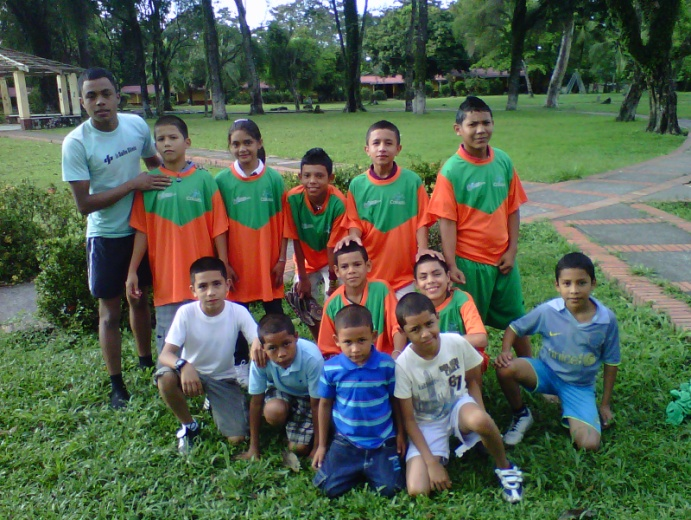In a Caribbean paradise, child poverty continues to be a widespread phenomenon

La Ceiba is located on the Caribbean Coast of Honduras and is widely considered the third most important city of the country. In Honduras, children under the age of 15 represent nearly 40 per cent of the country's population. Despite its beautiful white-sand beaches, La Ceiba remains a city of contrast. Many of the children in La Ceiba live in unimaginably poor conditions. Malnutrition, poor infrastructure, high child mortality and brutal gang violence mark their every-day lives. A fairly large number of the 150,000 children who grow up without parental care in Honduras live in La Ceiba.
Hoping to find work, these children often leave smaller towns in rural areas in order to lead a better life in the country's urban centres. Many of them end up in the informal sector where they resort to begging, selling merchandise or shining shoes. On the Caribbean Coast of Honduras, the lives of many children are severely marked by abuse and neglect due to the difficult socioeconomic situation they have been growing up in. As chronic poverty persists, child prostitution has been on the increase in Honduras, particularly in the country's north. Child labour also remains a widespread phenomenon in La Ceiba. Most of the working children are deprived of a decent education that would give them better opportunities to break the cycle of poverty. Located right on the Caribbean coastline, La Ceiba frequently faces natural disasters, in particular hurricanes and heavy rainfalls which cause flooding. Such events further aggravate the living conditions of La Ceiba's poorest segments of population.
Providing children and young people with long term support
The Honduran government has implemented a number of projects to help vulnerable children in the country but a great need for long-term alternative care remains. More than 150,000 children in Honduras grow up without parental support. The majority of these children have no other option but to live and work in the streets for survival. Their lives are marked by poor housing conditions, a lack of education and undernourishment. In order to protect and support the most vulnerable members of the Honduran society, SOS Children's Villages has intensified its efforts in Honduras.
What we do in La Ceiba

The SOS Children's Village La Ceiba has been providing support to the children and youths of the region since the mid-1980s. SOS Children's Village La Ceiba consists of 16 SOS families where up to 119 children are taken care of. At the SOS Children's Village La Ceiba our organisation also offers medical treatment and educational support. The children of La Ceiba, whose families can no longer take care of them, can find a loving home in one of the SOS families. Once the children reach a certain age, they are able to move to the SOS Youth Programme where they gradually prepare for an independent life with the help of our SOS counsellors. With the support of qualified youth workers, the young people develop realistic perspectives for their future, learn to shoulder responsibility and increasingly make their own decisions.